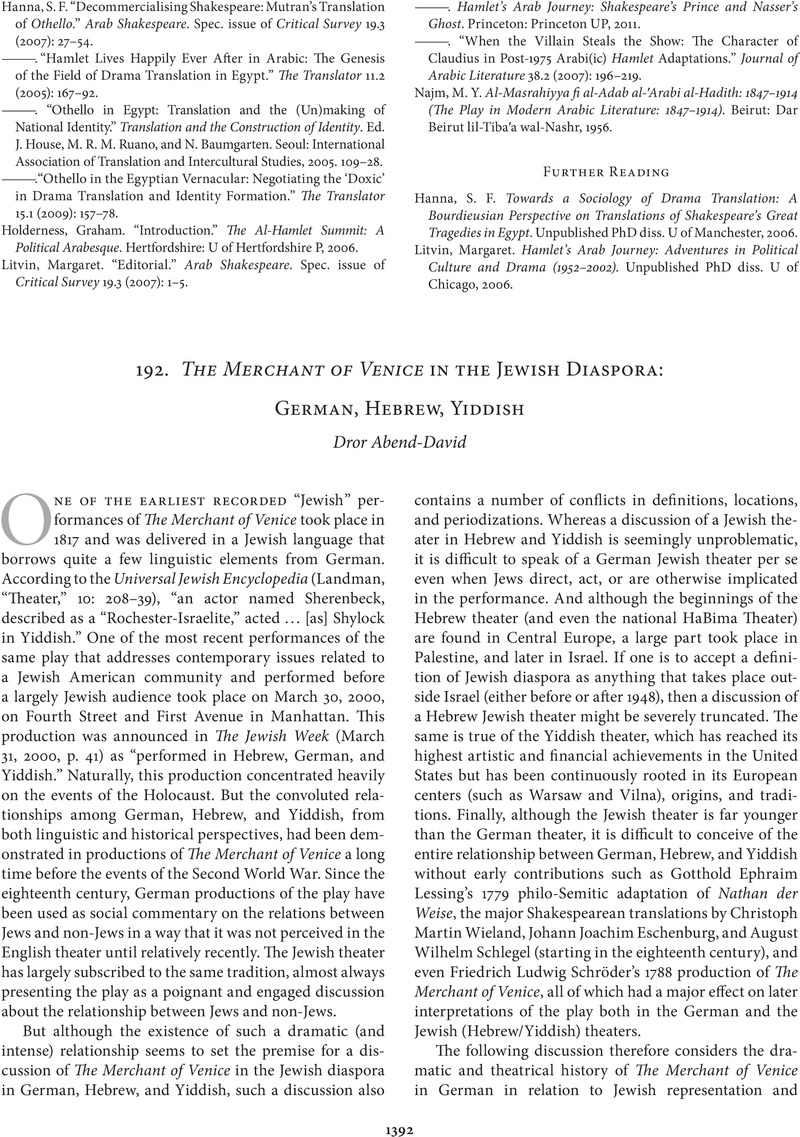Book contents
- The Cambridge Guide to the Worlds of Shakespeare
- Frontispiece
- Frontispiece
- The Cambridge Guide to the Worlds of Shakespeare
- Worlds of Shakespeare
- Copyright page
- Contents
- Illustrations
- Contributors
- Preface
- Acknowledgments
- Abbreviations
- Part I Mapping Shakespeare’s World
- Part II Theater
- Part III Language
- Part IV Science and Technology
- Part V Printing, Publishing, Textuality
- Part VI Visual Arts
- Part VII Popular Culture
- Part VIII High Culture
- Part IX England, 1560–1650
- Part X Religion
- Part XI Medicine
- Part XII The Historical William Shakespeare
- Part XIII Shakespeare’s Fellows
- Part XIV Shakespeare’s Early Reception (to 1660)
- Part XV International Encounters
- Part XVI Making the Scene
- Part XVII Shakespeare as Cultural Icon
- Part XVIII Shakespeare and Popular Culture
- Part XIX Translation
- Introduction
- 185 Canonization and Obsolescence: Classic Translations versus Retranslations
- 186 Signing Shakespeare (ASL)
- 187 Shakespeare into Creole
- 188 Translating Shakespeare for the Screen
- 189 Translating Shakespeare for Performance
- 190 Idioms, Proverbs, Quotations: Shakespeare’s Influence on Language Evolution
- 191 Shakespeare’s Entry into the Arabic World
- 192 The Merchant of Venice in the Jewish Diaspora: German, Hebrew, Yiddish
- 193 Shakespeare Translations in Asia
- 194 The Cultural Politics of Spanish Translations
- 195 Shakespeare without Sweat: Updating and Simplifying Shakespeare’s English
- Part XX Changing Technologies of Stage Performance
- Part XXI Audiences
- Part XXII Production History
- Part XXIII Printing and Reception History
- Part XXIV Shakespeare and the Book
- Part XXV Shakespeare and the Critics
- Part XXVI Shakespeare and the Performing Arts
- Part XXVII Shakespeare and the Visual Arts
- Part XXVIII Shakespeare and Media History
- Index
- References
192 - The Merchant of Venice in the Jewish Diaspora: German, Hebrew, Yiddish
from Part XIX - Translation
Published online by Cambridge University Press: 17 August 2019
- The Cambridge Guide to the Worlds of Shakespeare
- Frontispiece
- Frontispiece
- The Cambridge Guide to the Worlds of Shakespeare
- Worlds of Shakespeare
- Copyright page
- Contents
- Illustrations
- Contributors
- Preface
- Acknowledgments
- Abbreviations
- Part I Mapping Shakespeare’s World
- Part II Theater
- Part III Language
- Part IV Science and Technology
- Part V Printing, Publishing, Textuality
- Part VI Visual Arts
- Part VII Popular Culture
- Part VIII High Culture
- Part IX England, 1560–1650
- Part X Religion
- Part XI Medicine
- Part XII The Historical William Shakespeare
- Part XIII Shakespeare’s Fellows
- Part XIV Shakespeare’s Early Reception (to 1660)
- Part XV International Encounters
- Part XVI Making the Scene
- Part XVII Shakespeare as Cultural Icon
- Part XVIII Shakespeare and Popular Culture
- Part XIX Translation
- Introduction
- 185 Canonization and Obsolescence: Classic Translations versus Retranslations
- 186 Signing Shakespeare (ASL)
- 187 Shakespeare into Creole
- 188 Translating Shakespeare for the Screen
- 189 Translating Shakespeare for Performance
- 190 Idioms, Proverbs, Quotations: Shakespeare’s Influence on Language Evolution
- 191 Shakespeare’s Entry into the Arabic World
- 192 The Merchant of Venice in the Jewish Diaspora: German, Hebrew, Yiddish
- 193 Shakespeare Translations in Asia
- 194 The Cultural Politics of Spanish Translations
- 195 Shakespeare without Sweat: Updating and Simplifying Shakespeare’s English
- Part XX Changing Technologies of Stage Performance
- Part XXI Audiences
- Part XXII Production History
- Part XXIII Printing and Reception History
- Part XXIV Shakespeare and the Book
- Part XXV Shakespeare and the Critics
- Part XXVI Shakespeare and the Performing Arts
- Part XXVII Shakespeare and the Visual Arts
- Part XXVIII Shakespeare and Media History
- Index
- References
Summary

Keywords
- Type
- Chapter
- Information
- The Cambridge Guide to the Worlds of Shakespeare , pp. 1392 - 1399Publisher: Cambridge University PressPrint publication year: 2016



